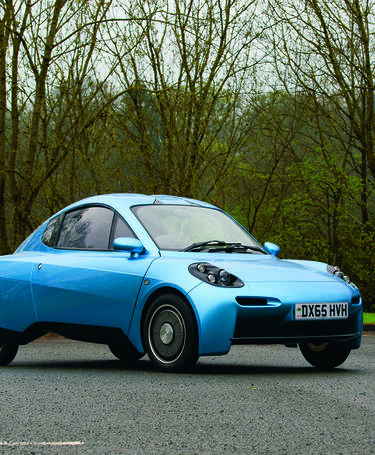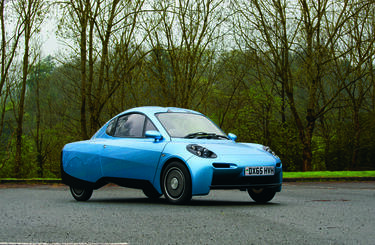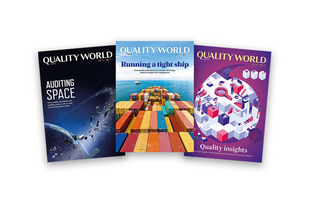
Governance and the community
Progress indicator

In the final part of our series following British start-up Riversimple, community custodian Peter Davies dissects the company’s unique governance model from a community perspective.
We introduced you to car manufacturer Riversimple in our June issue of Quality World and its unique governance structure with six custodians representing six stakeholders: the environment, the users, the neighbours, the staff, the investors and the commercial partners.
Last month, staff custodian Stafford Lloyd revealed how he ensures Riversimple is run well from a staff perspective. Now, systems and sustainability engineer Stafford Lloyd explains how he incorporates the community in Riversimple’s governance structure.
Peter Davies’ background is in business, working for the CBI, DTI and Business in the Community. He became the first Commissioner for Sustainable Futures in Wales in April 2011.
Davies has also taken a key role in the development of the Wellbeing of Future Generations (Wales) Act by leading a national conversation on ‘The Wales we Want’ and using the findings to create a framework for long-term goals.
What makes Riversimple unique?
I am inspired by the depth and breadth of the Riversimple vision. I believe the governance system could help to rebalance the relationship between local and global from a business context.
What is ‘Community’?
Community, simply put, is about being connected. Community contributes to our sense of who we are and what we care about.
The ‘Wales we Want’ conversation engaged 7,000 people across Wales. We found that feeling disconnected, in particular from decision making, is a significant issue for communities today. Many people don’t feel in control of what is happening to them. Many younger people don’t feel there is a future for them. The Riversimple model represents an opportunity to shape business in a way that re-connects with community, creating new opportunities, engaging young people in particular and enthusing them.
What are the best and worst things that a business can bring to a (geographical) community?
A business can bring investment and jobs to a community, and it can help to develop a local skills base and local supply chains. It can bring prosperity, not just in the form of jobs, but the long-term resilience of the community.
However, all businesses should consider the wider impact they will have on a community. It’s not just about winning support in the short-term. Political and media rhetoric can tend to focus on job creation. But while that is important, it is not the whole picture. Quality of life for a community is dependent on the nature of those jobs.
Wales is a country that knows all about the adverse affect of heavy industry, the effect it can have on air pollution and the long-term health of the community.
A social and environmentally responsible company like Riversimple is exactly what Wales needs to fulfill the ambitions of the Wellbeing of Future Generations Act.
What are you looking forward to?
It’s very exciting that this radical change is being led from a company based in the heart of rural mid Wales.
I’m looking forward to the first pilot in Monmouthshire – our first community. I have great regard for the leadership in Monmouthshire and together we have a chance to test out the car and the business model. There is a huge groundswell of local support from people who really want Riversimple to succeed.
We want to show that we can attract the very best engineers and new technology to a rural area. We want to show that we can bring young people back to rural communities because businesses are offering careers that appeal to them – without damaging the environment. I am very excited about that.
Riversimple’s ‘place by place’ pilot begins with trials of the Rasa car in Monmouthshire. Following both rural and urban-based trials, Riversimple plans to expand via regional, small scale manufacturing units, producing 3,000 to 5,000 vehicles per year. Each unit is expected to create high quality local jobs for around 200 people.
Peter Davies is the community custodian at Riversimple and is also a trustee at the Foundation for Democracy and Sustainable Development.
Keep up-to-date with the lastest research, insight and thinking on the biggest topics in the world of quality.
Member only

This article is free to access for a limited time only. Only CQI and IRCA members receive access to all content.
Good Governance Report 2016
A groundbreaking report from the CQI and the Institute of Directors.